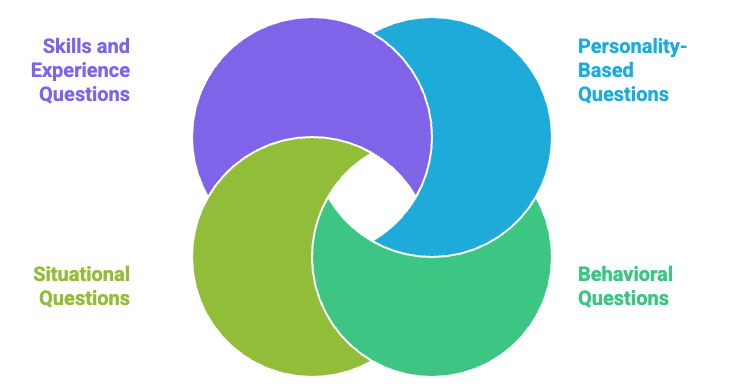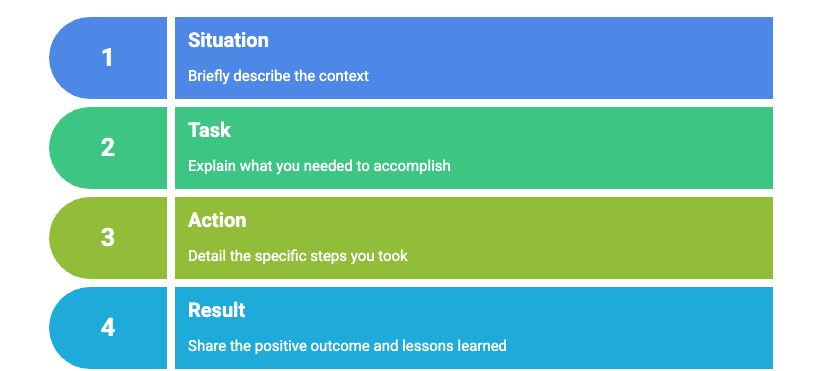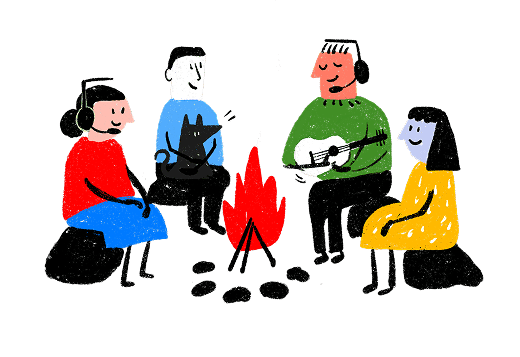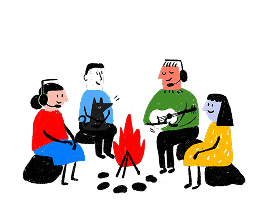Set up AI agents for customer support in less than 10 minutes
Set up AI agents in minutes
Top 20 customer service interview questions: What to expect and how to answer (With examples)
Sneha Arunachalam .
Aug 2025 .

Nail the Interview. Land the Role.
Customer service interviews can feel deceptively simple — until you're in the hot seat. Beyond smiling and saying “I’m a people person,” interviewers want real stories, smart thinking, and signs that you’ll thrive under pressure. From tricky customers to tight deadlines, they’re looking for someone who’s been in the trenches — or at least knows how to handle the chaos.
This guide covers the most common customer service interview questions — from personality-based icebreakers to high-stakes situational challenges. Each question comes with real-world examples and insights so you’re never caught off guard.
Let’s get you interview-ready.

Top personality-based customer service interview questions
Personality questions kick off most customer service interviews. They seem straightforward, but hiring managers use them to get a read on your character and how you'd actually interact with customers.
1. Tell me about yourself
This classic opener helps interviewers figure out your conversational skills and spot your strengths. Pretty much every interview starts here, but your answer tells them a lot about whether you'd be good with customers.
Keep it professional — save the personal stuff for later. Structure your response like a quick career story, starting with where you are now and working backward through relevant experiences. Focus on skills that match what they're looking for.
What they're really listening for:
- How you communicate and organize your thoughts
- Skills and interests that matter for the role
- Confidence without being cocky
Here's a solid example: "I'm a communications graduate from Ohio State University who's passionate about applying my education to help people solve problems. My customer service background in retail taught me patience and problem-solving. I volunteer at the local animal shelter on weekends, which has strengthened my empathy skills. I'm excited to learn more about this role and how I can contribute."
Before you move on to the next question:
If you’ve worked with customer support tools before, this is a good moment to refresh how modern support teams operate today.
Try SparrowDesk to see a live support inbox, real conversations, internal notes, SLAs, and AI-assisted replies so your interview answers reflect how support actually works now.
Practice with a real support inbox
2. What does good customer service mean to you?
This one's all about whether your approach matches what the company actually values. Your answer shows what you prioritize when dealing with customers.
Do your homework before the interview. Check out their mission statement and how they talk about customer service. This prep work shows you're serious and helps you align your response with their approach.
Good customer service usually means:
- Actually understanding what customers need
- Building real trust and relationships
- Being consistent with timely, attentive service
- Going beyond just fixing problems to create positive experiences
Try something like this: "Good customer service means ensuring customers feel valued and heard. It's about actively listening to understand their needs, responding promptly, and finding solutions that exceed expectations. I believe good service builds relationships that encourage customers to return and recommend the business to others. The most memorable service happens when representatives show genuine empathy and take ownership of problems until they're fully resolved."
3. Why do you want to work here?
Think of it like this: they want to know you actually want this job, not just any customer service position. Show them you're excited about their specific company and values.
Before you walk in, thoroughly check out their website, social media, and employee reviews. Find things that genuinely appeal to you — company culture, values, growth opportunities, whatever resonates.
A thoughtful response might be: "I'm drawn to your company's reputation for exceptional customer care and your commitment to employee development. Your positive reviews on Glassdoor about work environment and company culture particularly stood out to me. I appreciate how your values align with mine, especially your focus on building long-term customer relationships rather than quick transactions. I believe my skills in creating meaningful customer connections would contribute to your mission."
4. How would your colleagues describe you?
This question reveals your self-awareness and how you work with others. It helps them understand your people skills and whether you'd fit their culture.
Highlight qualities that matter for customer service, but back them up with specific examples. Be honest about your strengths without overselling yourself.
What they're looking for:
- Self-awareness and honesty
- How well you work with teams
- Customer service qualities in action
An effective answer: "My colleagues would describe me as reliable and supportive. In my last role, team members often came to me for help with difficult customer situations because of my calm approach under pressure. They'd say I'm a strong communicator who values feedback and adapts quickly to changes. My manager appreciated my proactive problem-solving, like when I created a quick-reference guide for common customer issues that reduced our response time by 15%. I'm also known for bringing positive energy to the team, even during busy periods."
5. What motivates you to do well in a customer service role?
This question gives insight into what drives you — whether it’s solving problems, making people happy, or hitting goals. Employers want to see that your motivation lines up with what the role demands.
What they're really listening for:
- Internal motivation, not just “a paycheck”
- Alignment with company/customer goals
- Passion for helping people
A strong answer: "I’m motivated by knowing I can make someone’s day better. In customer service, every interaction is a chance to turn frustration into satisfaction. Solving problems and hearing that ‘thank you’ at the end drives me to keep improving."
Quick tip
Not all customer service roles are the same. Interview expectations vary depending on your experience level — from first-time support roles to senior customer service positions. While the core skills remain consistent, the depth, ownership, and examples interviewers expect change as you grow.
Candidates who can reference real workflows stand out. If you’ve used support tools before, try SparrowDesk to see how modern teams manage conversations, ownership, and resolution today.
See modern support workflows in action
Entry-level / Freshers
If you’re applying for your first customer service role, interviewers focus more on attitude, communication, and problem-solving approach than past experience.
Example questions:
1. Why do you want to start your career in customer service?
2. How would you handle a customer who is unhappy with a product?
3. How do you stay calm when dealing with pressure or criticism?
4. What skills do you bring to this role, even without direct experience?
Experienced customer service professionals
For experienced customer service professionals, interviewers look for proven problem-solving, consistency, and ownership.
Example questions:
1. Can you describe a challenging customer issue you resolved independently?
2. How do you balance speed and quality in high-volume environments?
3. How do you handle repeat issues or recurring customer complaints?
4. How have you improved a process or customer experience in your previous role?
Senior / Lead / Manager roles
For senior, lead, or managerial customer service roles, interviewers evaluate leadership, decision-making, and impact beyond individual tickets.
Example questions:
1. How do you coach underperforming customer service agents?
2. How do you balance customer satisfaction with operational efficiency?
3. Can you share an example of leading your team through a high-pressure situation?
4. How do you measure and improve customer service performance?
Behavioral customer service interview questions and how to answer them
Here's where things get real. Behavioral customer service interview questions dig into your actual experiences — not what you think you'd do, but what you've actually done when the pressure was on.
Think of it like this: personality questions are the appetizer, but behavioral questions are the main course. Interviewers want specific stories from your work history that show how you handle the messy, complicated stuff that happens in customer service every day.
6. How do you handle pressure?
Customer service can feel like a pressure cooker sometimes — high call volumes, upset customers, tight deadlines. When they ask this question, they're trying to figure out if you'll crack under that pressure or stay cool.
A solid answer shows you've got techniques that actually work:
"Working under pressure just comes with the territory in customer service. When things get tense, I take a deep breath before responding — helps me make sure I'm following the best course of action. In my previous call center role, I inherited an overdue issue after the original rep left unexpectedly. The customer needed resolution within days. I created a detailed plan, broke it into manageable daily tasks, kept my manager in the loop on progress, and met the deadline successfully."
What they're really listening for:
- You recognize when pressure's building
- You've got specific techniques to stay calm
- You keep things professional even when it's chaos
7. Describe a time you received negative feedback
Nobody loves criticism, but here's the thing — feedback really is a gift. Research shows that leaders who seek critical feedback are viewed as more effective by superiors, employees, and peers than those who primarily seek positive feedback. This question tests how you handle criticism and actually grow from it.
Your answer should show you can take it and use it:
"In my retail position, a customer complained about my product knowledge. Initially, I felt defensive — nobody likes hearing they messed up. But I realized this was valuable information. I thanked my manager for sharing the feedback, then enrolled in additional product training. I even created quick reference guides for our team. The experience taught me that customer feedback, even when it stings, gives you opportunities to get better and ultimately improve service quality."
8. How do you prioritize tasks?
Good prioritization skills matter in pretty much every role. Employees with solid prioritization abilities meet deadlines, manage workloads effectively, and control stress when dealing with multiple tasks. They want to see if you can juggle without dropping the ball.
Here's what works:
"I start each morning by reviewing my task list and tackle customer communications first. When new requests come in, I evaluate them based on urgency and impact — critical stuff goes to the top. For instance, I prioritize customers with time-sensitive issues while scheduling less urgent matters for later follow-up. I also communicate proactively with customers even before resolution, so they know their concerns are being addressed. This system helped me maintain a 98% on-time resolution rate in my previous role."
Modern help desks are built around prioritization.
See how teams use SparrowDesk to manage urgency, ownership, follow-ups and reference that experience in your interview answers.
Learn with SparrowDesk
9. Tell me about a time you went above and beyond
Going above and beyond isn't just good for customers — it helps you stand out in interviews. They want a specific example, so prepare one using the STAR method (Situation, Task, Action, Result).
Here's what a strong answer looks like:
"At a hotel where I worked, a business traveler who'd never visited Ohio before asked about vegan and gluten-free restaurants nearby. Rather than just giving her a generic suggestion, I researched options and compiled a list of twelve restaurants within five miles that offered both vegan and gluten-free choices. I hand-delivered the list to her room. She was thrilled with the personalized service, later wrote a glowing review mentioning this specifically, and became a loyal customer who requested me for all future stays."
The key with behavioral questions? Preparation matters. Think through your past experiences and identify stories that showcase your customer service strengths. Practice these responses so you can deliver them confidently during your interview.
10 Describe a time you handled a miscommunication with a teammate.
Support teams work closely — miscommunication can lead to customer issues. This question shows how you handle conflict and restore clarity.
What they're really listening for:
- Ownership of communication gaps
- Proactive resolution
- Collaboration over blame
A good answer: "A teammate misread a note and followed up incorrectly with a customer. I noticed the confusion, clarified the facts with both parties, and helped create a clearer handoff system to avoid similar issues. It improved team alignment going forward."
Situational customer service interview questions
Situational questions put you right in the middle of real customer scenarios. Think of it like this: instead of asking what you might do, they're watching how your brain actually works through problems that happen every single day.
11. What if you don't know the answer to a customer's question?
Nobody knows everything — and hiring managers totally get that. What they're really testing is whether you'll be honest about it or try to fake your way through.
Here's what works: "If I don't know the answer, I'd be transparent with the customer by saying, 'That's a great question! I want to make sure you get accurate information, so let me find that answer for you.' I'd then use available resources like knowledge bases or ask a colleague with more expertise. Finally, I'd follow up promptly with complete information. At Disney theme parks, even sidewalk sweepers either provide accurate answers or find someone who can, because customers value honesty over speculation."
The key here is showing you can admit when you don't know something while still taking ownership of getting them the right answer.
12. How would you handle an angry customer?
This one's huge because angry customers are part of the job. Your approach here shows them exactly how you handle pressure and turn bad situations around.
A solid response might sound like: "I handle angry customers by staying calm and listening without interruption to fully understand their concerns. Next, I acknowledge their feelings with empathy: 'I understand why you're upset and I'm sorry for this inconvenience.' Then I ask clarifying questions to gather all necessary details, offer a specific solution or explain steps I'll take to resolve the issue, and finally confirm they're satisfied and thank them for their patience.
This structured approach shows I can handle tense situations logically and professionally. For example, in my previous role, when a customer was upset about a late delivery, I listened carefully, apologized sincerely, explained the shipping error, and offered a delivery fee refund plus expedited shipping. What began as frustration ended with appreciation."
Suggested read: Learn how to handle angry customers the right way
13. Describe a time you had to say no to a customer
Sometimes you've got to say no — but how you do it makes all the difference between losing a customer and keeping them happy.
"In my previous retail position, a customer requested a special discount that violated our pricing policy. Instead of a flat refusal, I acknowledged the value of their request: 'I understand why that would be helpful.' Then I explained our policy limitations while offering alternatives: 'While I can't offer that specific discount, I can apply our current promotion which would save you almost the same amount.' By suggesting comparable options, I maintained our relationship despite having to decline their original request. The customer ultimately appreciated my honesty and purchased using the alternative solution I proposed."
14. How do you handle delivering bad news?
Bad news is never fun, but your delivery can actually strengthen the relationship if you do it right.
"When delivering bad news, I follow specific steps to maintain trust. I prepare thoroughly by gathering all relevant information first. Then I choose a private setting for the conversation. I communicate directly without sugar-coating or delaying the news, as postponing difficult conversations typically makes situations worse. I show genuine empathy by acknowledging the impact on the recipient, listen actively to their response, and offer practical solutions or alternatives when possible. Finally, I follow up within 24-48 hours to check on their well-being and answer any additional questions. This approach helped me maintain customer relationships even when facing product delays or service limitations."
Skills and experience based customer service interview questions
Think of it like this: once you've gotten through the personality stuff, hiring managers want to see what you can actually do. These technical questions dig into your real experience and whether you've got the practical skills to handle the job.
15. What customer service tools have you used?
Here's what's happening — employers need people who can jump into their systems without a three-week learning curve. When they ask this question, they're checking if you can navigate customer service software efficiently and pick up new tools quickly.
A solid answer sounds like: "I’ve worked with different types of tools for ticketing, live chat, and customer communication — from standard support dashboards to real-time messaging platforms. In my previous role, I picked up a new internal system in under a week and eventually helped onboard new team members. I’m comfortable learning new tools quickly, and I often dig into automation settings, AI features, or keyboard shortcuts to make workflows faster and more efficient. I believe the right tools can really improve both the customer experience and team productivity."
What they're really looking for are candidates with digital fluency who can use AI-powered support tools and automation platforms to make customer experiences better.
If you’ve used customer service tools before, this is where context helps.
Exploring SparrowDesk gives you a hands-on view of how modern teams combine ticketing, live chat, automation, and AI-assisted replies in one place.
It’s a practical reference you can draw from when interviewers ask how you adapt to new tools and optimize workflows.
Learn how modern support teams use SparrowDesk
16. What are your strengths and weaknesses?
This classic question never goes away. It helps employers figure out your self-awareness and whether you actually want to grow. Focus on strengths that matter for customer service while being honest about areas where you're improving.
For strengths, highlight things like:
- Patience when dealing with frustrated customers
- Problem-solving abilities
- Empathy and emotional intelligence
- Communication skills that actually work
- Technical skills with relevant tools
When talking about weaknesses, pick something that's not essential to the role but shows you're working on it: "My weakness is sometimes being overly detail-oriented, which occasionally slows my process. I've addressed this by creating templates for common responses while still personalizing each interaction. This approach has improved my efficiency without sacrificing quality."
17. What makes you a good teammate?
Customer service reps rarely work alone, so this question checks your collaborative abilities. Hiring managers want to see evidence that you play well with others and actually contribute to group success.
Something like this works well: "A good teammate supports others while doing their share of work. I pride myself on being reliable — when I promise something, I deliver. I actively share knowledge with colleagues and created a troubleshooting guide that reduced training time for new hires. Additionally, I recognize when teammates are overwhelmed and offer assistance before they need to ask."
18. What are your long-term career goals?
Companies invest in employees who have clear career ambitions. This question helps employers spot candidates looking for long-term growth rather than just a temporary position.
Outline realistic goals connected to the company's advancement paths: "My immediate goal is to master this customer service role through consistently exceeding quality standards. Within two years, I aim to develop specialized expertise in your product line and potentially move into a senior representative position. Long-term, I'm interested in training or team leadership opportunities where I can use my customer service experience to help others succeed."
19.How do you ensure data privacy when handling customer information?
Trust and compliance matter — even for entry-level roles. They’re testing your awareness and discipline.
What they're really listening for:
- Understanding of confidentiality
- Compliance with processes
- Willingness to speak up if unsure
Example: "I follow protocol strictly — no sharing customer info via non-secure channels, and I always verify identities before disclosing sensitive data. In my last role, I flagged a minor vulnerability in a shared template, which helped improve our internal policy."
20. Do you have any questions for me?
This is how almost every interview ends — and it’s not just a formality. When an interviewer asks this, they’re giving you a chance to demonstrate curiosity, enthusiasm, and how seriously you're considering the role. Smart questions can leave a lasting impression.
What they’re really listening for:
- That you’ve done your research
- That you care about the company/team
- That you're evaluating whether this is the right role for you
Strong questions you can ask:
- “What does success look like in this role after 3 to 6 months?”
- “What are the biggest challenges your customer service team is currently facing?”
- “How do you support professional growth and development within the team?”
- “Can you tell me more about your customer service values and how they show up in day-to-day operations?”
- “What tools or platforms does your team use to deliver customer support?”
Pro Tip: Avoid asking about salary, vacation, or time off too early. Wait until the offer stage or until the interviewer brings it up.
Why it matters: Great questions show that you’re not just trying to get hired — you’re trying to add value and grow with the team.
Hiring managers: How customer service candidates are evaluated
Before you move on to interview prep tips, it helps to understand how your answers are actually judged on the other side of the table.
Customer service interviews aren’t about saying the “right” thing, they’re about showing how you think, communicate, and operate under real-world conditions.
Here’s what hiring managers are actively evaluating during customer service interviews:
Communication clarity:
Hiring managers look for candidates who can explain situations clearly, concisely, and without overcomplicating things.
Strong answers are structured, easy to follow, and customer-friendly, the same way a good support response should be. Rambling, vague, or overly technical answers are often a red flag, even if the intent is good.
Ownership mindset:
Great customer service professionals take responsibility, even when issues aren’t directly their fault. Interviewers listen closely for language that shows accountability, phrases like “I followed up,” “I made sure,” or “I owned the resolution.”
Blaming systems, teammates, or customers signals a lack of ownership and usually lowers confidence in a candidate.
Emotional intelligence:
Empathy matters as much as efficiency. Hiring managers assess how well candidates recognize emotions, respond with empathy, and de-escalate tension.
This shows up in how you describe handling upset customers, receiving feedback, or navigating conflict not just what you did, but how you approached the situation emotionally.
Learning ability
Customer service environments change constantly — new tools, new processes, new products.
Interviewers value candidates who show curiosity, adaptability, and a willingness to improve. Mentioning how you acted on feedback, learned a new system quickly, or improved after a mistake signals long-term growth potential.
Tool adaptability:
While exact tool experience is a bonus, hiring managers care more about how quickly you can learn and use support software effectively.
Candidates who talk about exploring features, using automation, or optimizing workflows demonstrate modern support readiness — especially important in AI-assisted and omnichannel environments.
4 Tips to prepare for a customer service interview

Think of interview prep like getting ready for a first date — you want to show up as your best self, but you also need to be genuine. The difference between nailing an interview and just getting through it usually comes down to how much work you put in beforehand.
Use the STAR method to structure answers
The STAR method helps you create clear, impactful stories for behavioral questions. This approach includes:

- Situation: Briefly describe the context
- Task: Explain what you needed to accomplish
- Action: Detail the specific steps you took
- Result: Share the positive outcome and lessons learned
When using this technique, keep examples relevant to customer service situations and practice beforehand to sound natural, not rehearsed.
Research the company and its values
Don't just skim their website and call it good. Dig into their mission statement, check out their social media accounts, and see what's been happening with them lately. Get familiar with their products, services, and who their customers actually are. This knowledge helps you align your answers with their culture and goals.
Practice active listening and empathy
Here's something most people miss — interviewers are watching how you listen, not just how you talk. That tells them exactly how you'll treat their customers. Focus completely on their questions, don't interrupt, and ask thoughtful follow-ups. Show empathy by acknowledging feelings in your responses, since nearly 50% of customers believe companies act with empathy when delivering service.
Prepare questions to ask the interviewer
Thoughtful questions show you're actually interested and thinking ahead. Ask about team dynamics, company culture, or specific challenges in the role. This turns the whole thing into a real conversation instead of just a one-way interrogation, and that leaves a way better impression.
Customer service interview questions: Quick cheat sheet
Question Type | What Interviewers Are Testing | What to Focus On in Your Answer |
|---|---|---|
Tell me about yourself | Communication clarity, confidence | Short career story, relevant experience, customer-facing skills |
What does good customer service mean to you? | Values alignment, empathy | Listening, ownership, consistency, customer trust |
Why do you want to work here? | Motivation, research effort | Company values, culture fit, long-term interest |
How would your colleagues describe you? | Self-awareness, teamwork | Reliability, collaboration, calm under pressure |
What motivates you in customer service? | Intrinsic motivation | Helping customers, problem-solving, impact |
How do you handle pressure? | Stress management | Staying calm, prioritizing, structured action |
Describe a time you received negative feedback | Coachability | Openness to feedback, learning, improvement |
How do you prioritize tasks? | Time management | Urgency vs impact, communication, follow-ups |
Tell me about a time you went above and beyond | Ownership mindset | Personal initiative, customer-first thinking |
Handling miscommunication with a teammate | Collaboration | Clarity, accountability, fixing processes |
What if you don’t know an answer? | Honesty, ownership | Transparency, follow-up, resourcefulness |
How do you handle an angry customer? | Emotional intelligence | Empathy, listening, resolution steps |
Describe a time you had to say no | Communication skill | Policy clarity, alternatives, respect |
Delivering bad news | Trust-building | Directness, empathy, follow-through |
Tools you’ve used | Digital fluency | Adaptability, automation, AI awareness |
Strengths and weaknesses | Self-reflection | Relevant strengths, honest improvement areas |
What makes you a good teammate? | Collaboration | Reliability, knowledge sharing |
Long-term career goals | Growth mindset | Realistic progression, learning focus |
Data privacy handling | Responsibility | Compliance, caution, escalation |
Questions for the interviewer | Curiosity, seriousness | Role success, challenges, tools, growth |
How to use this cheat sheet
- Scan before the interview to frame your answers
- Match examples from the blog to each question type
- Practice aloud using the structure: context → action → outcome
Practice smart. Answer with impact. Get the job.
Great customer service interview answers aren’t about memorizing scripts — they’re about telling authentic stories with clarity and confidence. With the right prep, you won’t just answer questions — you’ll show who you are, how you think, and why you’re the right person for the role.
Whether you’re breaking into customer service or moving up the ladder, these customer service interview questions are your cheat sheet to stand out. Practice out loud. Personalize your answers. And remember: confidence isn’t about having all the answers — it’s about showing you’re coachable, committed, and ready to grow.
One last edge: grounding your answers in real workflows makes them more credible.
If you’ve worked with support tools before, spending a little time in a modern inbox can help you speak more confidently about prioritization, ownership, and collaboration.
Learn how today’s support teams work with SparrowDesk.
Learn with SparrowDesk. Interview-ready, not scripted.
Good luck. You've got this.
Quick summary: Customer service interview questions
Customer service interviews go beyond the basic "people person" response. This comprehensive guide prepares you for the most challenging customer service interview questions with real-world examples and strategic insights. From personality-based queries to high-pressure situational scenarios, you'll learn to navigate every type of question confidently.
- Personality Questions: Master classics like "Tell me about yourself" and "What does good customer service mean to you?"
- Behavioral Scenarios: Handle pressure, receive feedback constructively, and demonstrate going above and beyond
- Situational Challenges: Navigate angry customers, deliver bad news, and admit knowledge gaps professionally
- Technical Skills: Showcase experience with customer service tools and team collaboration abilities
- STAR Method: Structure compelling answers using Situation, Task, Action, Result framework
- Interview Preparation: Research company values, practice active listening, and prepare thoughtful questions
Success with customer service interview questions comes from authentic storytelling, not memorized scripts. This guide equips you with 20 essential questions, proven answer strategies, and preparation techniques. Whether you're entering customer service or advancing your career, practice these responses, personalize your examples, and remember—confidence means showing you're coachable and ready to grow. You've got this.
Frequently Asked Questions
MORE LIKE THIS

Top 20 customer service interview questions: What to expect and how to answer (With examples)
.png&w=3840&q=75)
How to become a customer service representative (2025): Skills, salary & career path

8 proven customer service training ideas for high-performing support teams
Support made easy. So your team can breathe.



